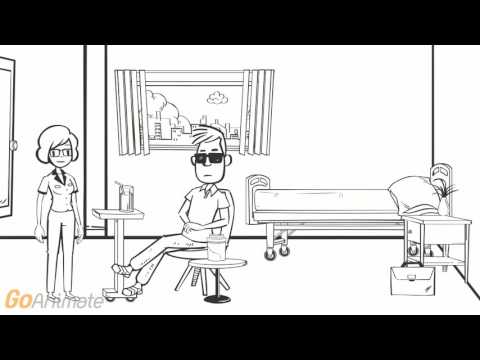Administrative Medical Assisting – Your Key to a Successful Medical Career
Contents
- Introduction to administrative medical assisting
- The duties of an administrative medical assistant
- The importance of administrative medical assistants
- The skills needed to be an administrative medical assistant
- The education and training required to be an administrative medical assistant
- The job outlook for administrative medical assistants
- The salary and benefits of an administrative medical assistant
- The challenges of administrative medical assisting
- The rewards of administrative medical assisting
- How to become an administrative medical assistant
If you’re looking for a successful career in the medical field, consider becoming an administrative medical assistant This important role provides support to doctors and other medical staff, ensuring that patient care runs smoothly. Follow our blog for tips on how to get started in this exciting field.
Checkout this video:
Introduction to administrative medical assisting
In order to become a successful administrative medical assistant you will need to have a strong understanding of the medical field and the administrative tasks that are required to keep a medical practice running smoothly. This guide will give you an overview of the duties of an administrative medical assistant, the skills that are necessary for success in this career, and the education and training that you will need to get started.
Administrative Medical assistants are responsible for a wide range of tasks in a medical office or clinic, from greeting patients and scheduling appointments to billing insurance companies and handling patient records. They must be able to multitask and stay organized in order to keep the office running efficiently. In addition, they need to have excellent customer service skills in order to deal with patients and their families.
If you are interested in pursuing a career as an administrative medical assistant, you will need to complete a training program at a community college or vocational school. Many employers also require certification from a professional organization such as the American Association of Medical Assistants (AAMA). With the right education and training, you can start your career in this exciting field and make a difference in the lives of patients.
The duties of an administrative medical assistant
An administrative medical assistant is responsible for performing a variety of administrative and secretarial duties in support of medical office staff, including physicians, nurses and other medical assistants. They may also be responsible for providing patient care and performing clinical tasks, such as taking vital signs, drawing blood and preparing patients for examination.
Common duties of an administrative medical assistant include answering phones, scheduling appointments, verifying insurance benefits, maintaining medical records handling billing and coding insurance claims. They may also prepare patients for examination, take vital signs, obtain lab specimens and perform basic laboratory tests. Administrative medical assistants must be able to work independently and have strong interpersonal skills to deal with patients, families and other medical office staff.
The importance of administrative medical assistants
A medical assistant is a vital member of any healthcare team. They are responsible for a wide range of administrative and clinical tasks that help keep the office running smoothly and efficiently. This means that they must have excellent organizational skills, be able to multitask, and have a strong knowledge of Medical Terminology and office procedures.
While most medical assistants work in doctor’s offices, many also work in hospitals, clinics, and other healthcare settings. No matter where they work, they perform a variety of important duties, such as scheduling appointments, verifying insurance benefits, handling billing and coding information, managing patient records, preparing patients for examinations, taking medical histories and providing instruction on treatments or procedures.
Medical assistants must be able to work well under pressure and maintain a professional demeanor at all times. They must also have excellent communication skills to interact with patients, families, physicians, and other members of the healthcare team.
If you are interested in pursuing a career in healthcare, becoming an administrative medical assistant is a great choice. With hard work and dedication, you can find employment in a variety of settings and help make a difference in the lives of others.
The skills needed to be an administrative medical assistant
An administrative medical assistant performs a variety of clinical and administrative tasks to support the day-to-day operations of a healthcare facility. They are an integral part of the healthcare team, providing support to doctors, nurses, and patients.
To be successful in this role, you will need to have strong communication and organizational skills. You will also need to be proficient in using computers and office equipment. Medical assistants must be able to multitask and work well under pressure. They must have the ability to handle confidential information with discretion and tact.
If you are interested in pursuing a career as an administrative medical assistant, there are a few things you should do to get started. First, you should research the different educational programs that are available. Many community colleges offer medical assisting programs that can be completed in as little as two years. Once you have completed your formal education, you will need to obtain certification from an accredited organization such as the American Association of Medical Assistants (AAMA). To maintain your certification, you will need to complete continuing education credits on a yearly basis.
Once you have obtained your certification, it is time to start applying for jobs. Many medical assistants work in doctor’s offices, hospitals, or clinics. Some also work in nursing homes or other long-term care facilities. When applying for a position, be sure to highlight your clinical and administrative skills on your resume and cover letter. Once you have landed a job, it is important to perform your duties with professionalism and excellence. By doing so, you will set yourself apart from other medical assistants and pave the way for a successful career in healthcare!
The education and training required to be an administrative medical assistant
A medical administrative assistant is a key member of any healthcare team. They are responsible for managing thefront office operations of a medical facility, as well as providing support to doctors and other medical staff.
To become an administrative medical assistant, you will need to complete a formal education and training program. Most programs will take between one and two years to complete, and will include both classroom-based instruction and hands-on training. Once you have completed your education and training, you will be able to sit for the Certified Medical Administrative Assistant (CMAA) examination.
In order to be successful in this career, it is important to have strong administrative skills, as well as excellent customer service skills. As an administrative medical assistant, you will be the first point of contact for patients and their families, so it is important that you are able to deal with people in a professional and courteous manner. You should also be able to multi-task effectively, as you will often be juggling multiple tasks at any given time. If you have these skills and qualities, then a career as an administrative medical assistant could be the perfect fit for you!
The job outlook for administrative medical assistants
Administrative medical assistants are in high demand, and the job outlook for this career is very positive. There are many reasons for this, but the main one is that the role of the administrative medical assistant is essential to the smooth running of a medical practice.
There are many duties that administrative medical assistants perform, such as scheduling appointments, maintaining patient records, billing and collections, and handling insurance claims. They are also often responsible for training new staff members and handling office administration.
The job outlook for administrative medical assistants is very positive, and the future looks bright for this career. If you are interested in a career in medicine, then becoming an administrative medical assistant is a great choice.
The salary and benefits of an administrative medical assistant
The salary and benefits of an administrative medical assistant are very good. In most cases, the salary is based on experience and education. The benefits package usually includes health insurance and a retirement plan.
The challenges of administrative medical assisting
Medical assisting is one of the most challenging and rewarding career choices you can make. As an administrative medical assistant, you will be responsible for a wide variety of tasks, from greeting patients and scheduling appointments to handling billing and insurance paperwork.
The job is demanding, but the rewards are great. If you are organized, detail-oriented, and have a passion for helping others, a career in medical assisting may be the perfect choice for you.
There are many challenges that come with being an administrative medical assistant. One of the biggest challenges is keeping up with the ever-changing insurance landscape. With new laws and regulations being passed all the time, it can be difficult to keep up with all of the changes. Another challenge is dealing with difficult patients or family members. While most interactions with patients are positive, there will be times when you have to deal with challenging behavior.
Despite the challenges, being an administrative medical assistant can be a very gratifying experience. You will get to help people during some of the most vulnerable times in their lives, and you will play a vital role in keeping the medical office running smoothly. If you are up for the challenge, a career in medical assisting could be the perfect fit for you.
The rewards of administrative medical assisting
The medical field offers a variety of different career paths, each with its own unique set of rewards. For those interested in the administrative side of things, medical assisting can be a great option. Here are just a few of the many reasons why administrative medical assistants love their jobs:
1. Administrative medical assistants are the backbone of any successful medical practice. They are responsible for keeping the office organized and running smoothly, which ultimately makes patient care more efficient and effective.
2. Administrative medical assistants have the opportunity to work closely with both patients and doctors. This allows them to build strong relationships and gain a deep understanding of the medical field.
3. Administrative medical assistants play a vital role in patient care by handling scheduling, insurance paperwork, and other important tasks. This ensures that patients receive the best possible care and enjoy a positive experience at the doctor’s office or hospital.
4. Administrative medical assistants often have flexible job schedules that allow them to maintain a healthy work-life balance. This is especially beneficial for those who have families or other commitments outside of work.
5. Medical assisting is a growing field with plenty of opportunities for career advancement. Those who are motivated and take on additional responsibilities can often move into management positions within their practices or hospitals.
How to become an administrative medical assistant
Becoming an administrative medical assistant is a great way to begin a rewarding career in the medical field. If you have strong administrative skills and are interested in working in a medical setting, this may be the perfect career for you.
There are a few different ways to become an administrative medical assistant. One option is to earn a certificate or diploma from a vocational school or community college. Many of these programs can be completed in as little as one year.
Another option is to earn an associate’s degree in medical assisting. This typically takes two years to complete and provides you with more knowledge and training than a certificate or diploma program. In addition, many community colleges and vocational schools offer evening and weekend programs that allow you to complete your degree while continuing to work full-time.
Once you have completed your education, you will need to pass the Certified Medical Assistant (CMA) exam administered by the American Association of Medical Assistants (AAMA). Once you have passed the exam, you will be eligible to apply for jobs as an administrative medical assistant in many different settings, including doctor’s offices, clinics, hospitals, and other healthcare facilities.







